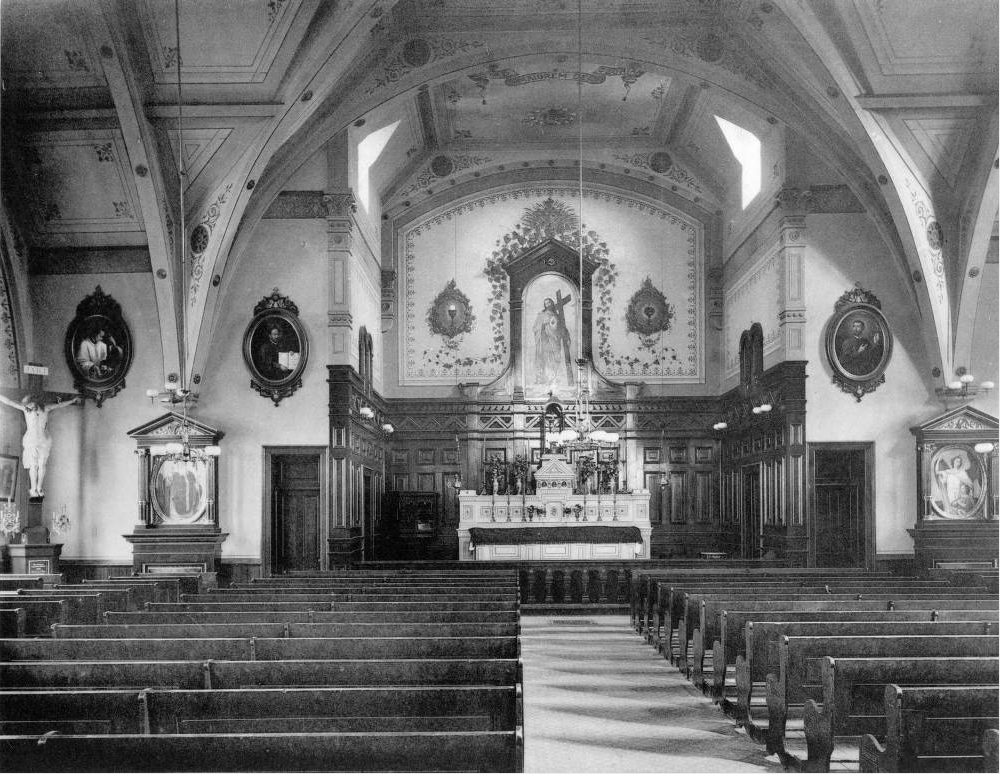Catholic hospitals in Colorado have already opted out of the state's new aid-in-dying law, and now the Archdiocese of Denver has said that terminally ill people who use prescribed medication to end their own lives will not have a funeral Mass.
The Archdiocese laid out its position as part of an FAQ on physician-assisted suicide and the sacraments posted this week to the Denver Catholic website. The concern is that people might not realize the depth of the Church's opposition if people who take their own lives are accorded a funeral Mass.
"Due to the significant risk of a funeral Mass leading people to think the Church accepts PAS (physician-assisted suicide), the bishops of Colorado have decided to only allow Christian burial for those who have committed PAS," the FAQ states. "Funeral Masses, liturgies of the word and paraliturgies are not permitted. Some days after the burial, loved ones are encouraged to have Masses said for the repose of the soul of the deceased."
Traditionally, those who committed suicide were not allowed even a Christian burial, but in modern times, with more understanding of mental illness, the Church has moderated its practice.
In an article in the Arlington Catholic Herald, Father William Saunders explains:
Objectively, suicide is a mortal sin. (Moreover, to help someone commit suicide is also a mortal sin.) Here though we must remember that for a sin to be mortal and cost someone salvation, the objective action (in this case the taking of one's own life) must be grave or serious matter; the person must have an informed intellect (know that this is wrong); and the person must give full consent of the will (intend to commit this action). In the case of suicide, a person may not have given full consent of the will. Fear, force, ignorance, habit, passion, and psychological problems can impede the exercise of the will so that a person may not be fully responsible or even responsible at all for an action. Here again the Catechism states, "Grave psychological disturbances, anguish, or grave fear of hardship, suffering, or torture can diminish the responsibility of the one committing suicide." This qualification does not make suicide a right action in any circumstance; however, it does make us realize that the person may not be totally culpable for the action because of various circumstances or personal conditions.
Therefore, when someone takes their life, Mass can be said for the "repose of their soul," and they can have a Christian burial. In some circumstances, a funeral Mass might be said.
Karna Swanson, a spokeswoman for the Archdiocese, said church leaders are particularly concerned by the fact that so many people need to be involved in helping someone with a terminal illness use the law. Two doctors need to determine that the person's medical condition is a terminal illness and that they have less than six months to live. Often, friends or family members would help administer the drugs.
"The differentiating factor is that various people are involved, thus giving the act a more public nature," she said in an email. "Due to its public nature, it is the decision of the bishops to not allow funerals in our parishes, so as to not lead people to think of PAS as accepted Church teaching."
The FAQ has additional guidance for priests who encounter people who want to use the law. They should be compassionate but firm.
Q: What should I do if I know someone planning to use Physician-Assisted Suicide (PAS)?
A: This person has decided to end his life and has convinced himself that he should reject God’s timeline for it. It is important to approach him compassionately, seeking to accompany him in his difficulties through listening, offering practical help with daily activities and directing him toward spiritual, medical and mental health resources. At the appropriate time, encouragement to reject PAS and embrace God’s plan for their life should also be given.
People who have stated their intent to end their lives cannot receive the sacrament of anointing of the sick.
"The anointing of the sick is aimed at strengthening the sick person in their trust of God, but PAS contradicts this radical surrender and entrusting of the sick person to God," the guidance states. "Until a person has satisfactorily confessed the sin of intending to commit PAS, they cannot receive the anointing of the sick."
The drugs used in medical aid-in-dying typically take effect quickly. However, if a priest were to arrive in time to hear confession and administer last rites, he should do so.
The document also includes links to end-of-life resources that accord with Catholic doctrine.













